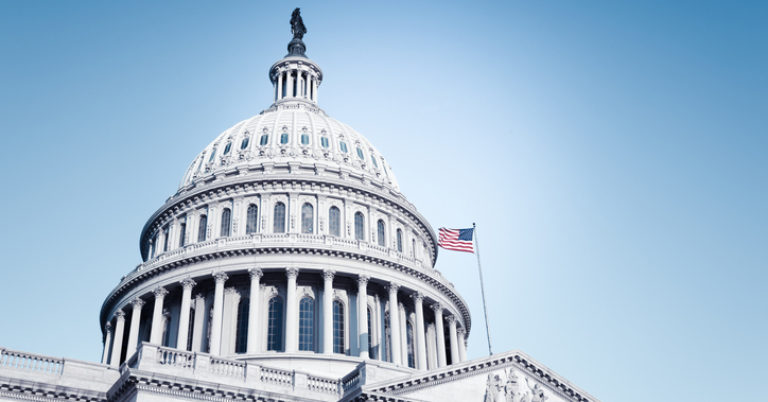
Inside ‘Dear Congress’, AFP’s new campaign to make life more affordable for all Americans
For too long, the conventional wisdom in Washington, D.C., has been that divided government is a free pass for partisan gridlock. We reject that.
The fact is, if Americans wake up two years from now with our country on the same path — and lawmakers have nothing to show for their promises but empty political theater — Republicans and Democrats will be held accountable.
Our message to the lawmakers of the 118th Congress is simple: don’t let that happen.
Congress must make life more affordable
There is serious misalignment between what voters need and what lawmakers want.
Election 2022 exit polls demonstrated the economy is voters’ top concern.
Even more recently, an early January 2023 Associated Press poll found the economy is still the issue Republicans and Democrats care about most.
And, according to a recent Gallup poll:
- 90% of Americans think 2023 will be a year of political conflict
- Roughly 80% anticipate 2023 being a year of economic hardship with rising taxes and deficits
Americans want an agenda that will make life more affordable.
Americans for Prosperity’s “Dear Congress” campaign offers one.
Instead of unproductive partisanship and costly federal programs and mandates, AFP offers bottom-up solutions that will make life more affordable. The agenda has three pillars:
- Lowering inflation through better budgeting
- Removing barriers to domestic energy production, processing and delivery
- Increasing opportunities for fulfilling work
Pillar No. 1: Reduce inflation through better budgeting
According to a federal government report released in December, food prices rose 10.6% between November 2021 and November 2022 and is projected to rise by up to 4.5% in 2023.
Government overspending can result in inflation, and inflation makes poverty worse. Visits to food banks have increased due to higher prices, but even these community organizations are not immune from inflation. Rising prices have eroded their ability to help struggling families.
Congress passing a unified budget — a real budget — each year would make a world of difference.
A unified budget would include all federal spending and revenue. Many U.S. states already have one, but Congress’ annual process separates direct spending programs like Social Security and Medicare — where lawmakers have little control over spending amounts — from programs like defense that they manage each year.
- Let Congress holistically manage all spending and revenue programs.
- Give all lawmakers greater stake in the budget process and empower them to take ownership of outcomes
- Reveal tradeoffs and help reduce overlap and fragmentation
- Allow legislators to chip away at imbalances
Pillar No. 2: Remove barriers to domestic energy production
When President Joe Biden took office in January 2021, the average gas price was around $2.40 a gallon. By June 2022, it was more than $5 a gallon. Gas prices have fallen, but at the end of 2022 they were still $1 more than when the president took office.
The solution: Remove barriers to energy innovation, infrastructure, and environmental progress.
Agencies implement the National Environmental Policy Act (NEPA) as a pretext to speculation regarding the environmental effects of private actions requiring federal approval. This far-reaching interpretation of NEPA blocks projects as diverse as road construction, energy development and clean water delivery. The resulting paralysis equally harms the economy and the environment.
When enacted in 1970, NEPA was a modest bill to ensure that government projects were designed in a way to mitigate environmental impacts. As currently implemented, NEPA slows private projects, increases taxpayer costs, and contributes to endless administrative litigation that subjects critical projects to death-by-delay.
As a result, it takes an average of four and half-to-six years to finish the environmental review process for energy and infrastructure projects, blocking even those that are publicly financed.
The UNSHACKLE Act, sponsored by Senator Mike Lee and Representative Don Bacon in the last session of Congress, would modernize NEPA. In combination with the START Act, a broader permitting reform bill sponsored by Senator Shelley Moore Capito, these changes would unleash a domestic energy revolution that would reduce costs for gas, home heating and domestic industry and manufacturing.
Pillar No. 3: Increase opportunities for fulfilling work
The term “quiet quitting” — doing less at work to focus on other things more — went viral in 2022.
The fact that fewer Americans feel happy with their jobs should be a sign to lawmakers that voters want policies that empower them to find fulfilling work that gives them the flexibility they want while building personal and financial independence.
The Employee Rights Act, sponsored by Senator Tim Scott (R-SC) and Representative Rick Allen (R-GA) in the last session of Congress, is a comprehensive bill that would help workers, families, and businesses thrive by giving them more choice and power over how unions represent them, greater protections in pursuing self-employment, and more protections to start businesses in their communities.
It’s time Congress chose progress instead of political theater, overspending, and overregulation.
Learn more about ‘Dear Congress’, the campaign to make life more affordable for all Americans.
